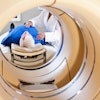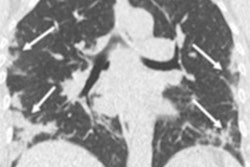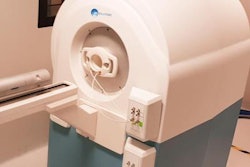Dear AuntMinnieEurope Member,
The success of artificial intelligence hinges on getting reliable data, so it's extremely worrying to hear that the ambiguities of the European Union's General Data Protection Regulation (GDPR) appear to be inhibiting the collection and exchange of data for use in the battle against COVID-19.
Dr. Erik Ranschaert, PhD, a longstanding and active member of our Editorial Advisory Board, shared his concerns at the AuntMinnie.com 2020 Virtual Conference. Don't miss this news report in the Artificial Intelligence Community.
Thoracic imaging specialists have been in strong demand during the pandemic. Dr. Mathias Prokop, PhD, is one of Europe's leading experts in this field. What's his department's approach to the disease? Find out in this exclusive interview in the CT Community.
Away from COVID-19, benign breast disease continues to cause anxiety, and deciding on and presenting the best treatment option can be vital to reassure patients. A large study in this area was posted last week by European Radiology. The authors found ultrasound-guided percutaneous microwave ablation is becoming a valuable treatment for benign breast lesions, and skilled interventional radiologists can perfect their technique faster than surgeons can.
Israeli researchers have revealed how 3D printing and virtual reality (VR) can have a real clinical impact. They described how the combination of 3D printing and VR enabled an anesthesiologist to develop a personalized and more appropriate airway plan for a 7-year-old child who needed a lung operation.
Japanese investigators have been keeping busy too. They've shown that ultrahigh-resolution CT can be used to improve image quality without increasing the amount of data. Learn more in our news article.
Last but not least, I'd like to draw your attention to an article about a new market research survey of more than 600 imaging facilities in Europe and the U.S. It found evidence of a pandemic paralysis that is affecting radiology worldwide.






.png?auto=format%2Ccompress&fit=crop&h=167&q=70&w=250)












